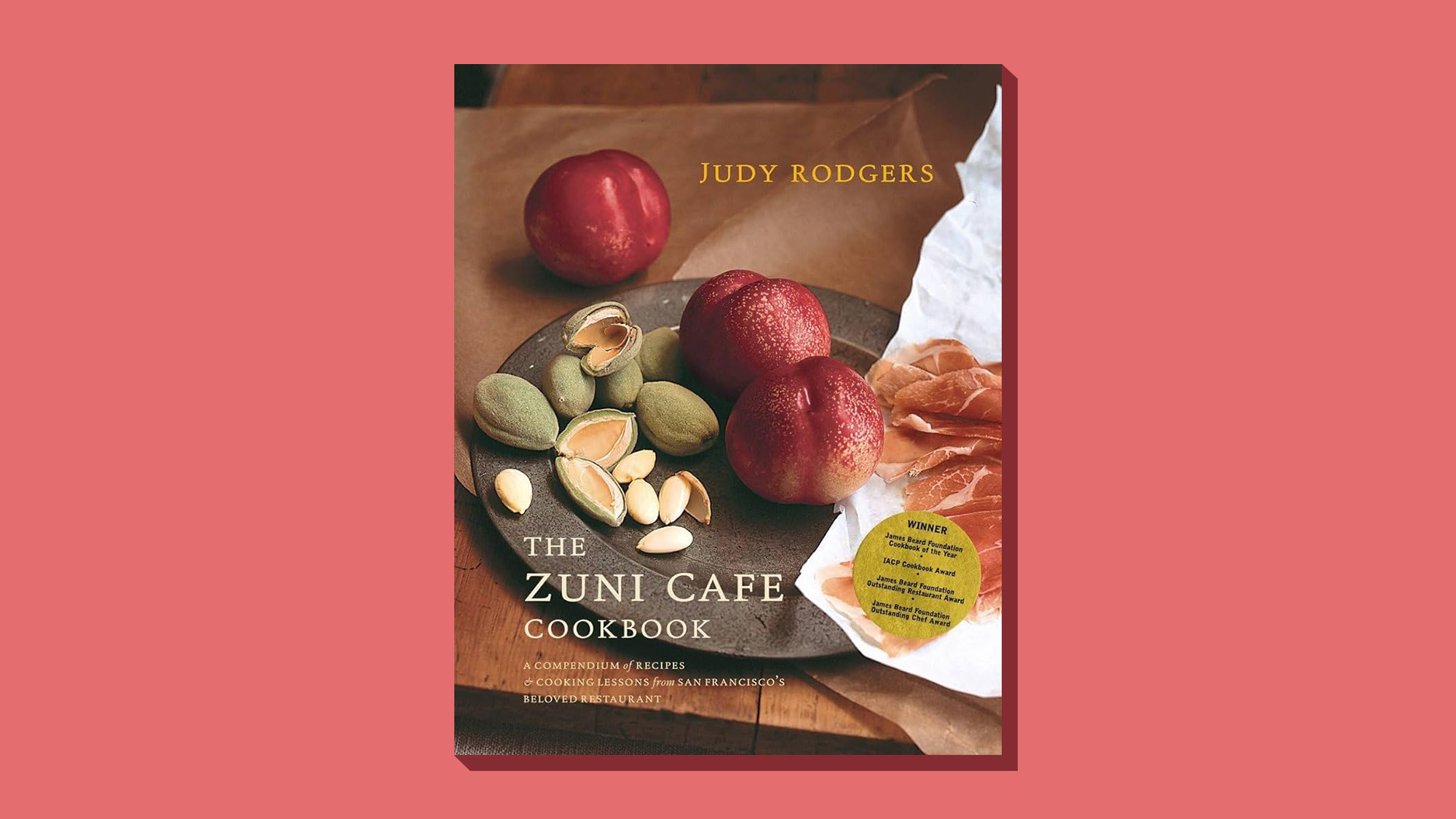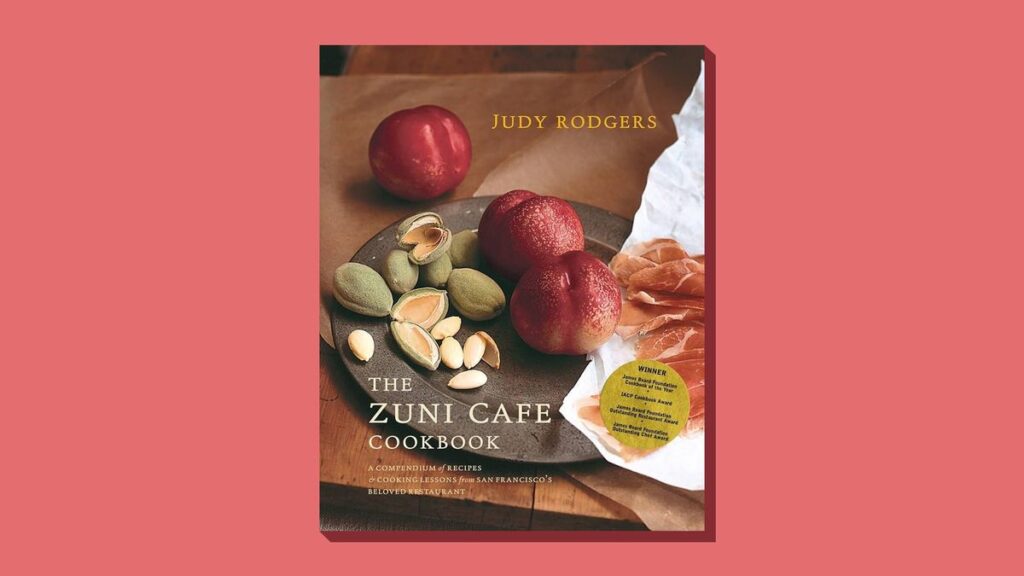Some cookbooks are bicycles with training wheels. They teach you how to cook, mitigating with masterful guidance your fears of toppling. Soon, your confidence develops. The training wheels come off, and you carve your own autonomous cooking path.
“The Zuni Café Cookbook,” published in 2002, is that bike. Over the course of its 500-plus pages, its author, Judy Rodgers, wheedles and emboldens the reader with recipes that spare no verbiage in describing how to think like a cook and, in time, act like one — with no one’s guidance but your own honed kitchen faculties.
Teaching and technique
The most famous dish at the 45-year-old Zuni Café in San Francisco is its roast chicken with bread salad. It is an honest dish, a whole chicken roasted in a wood-fired oven and accompanied by rough chunks of country bread tossed with vinegar and dried currants and pine nuts. Simple enough. The deliciousness is in the details.
Rodgers utilizes five pages to describe the process. How to prepare the bread so the chunks are craggy; how to warm the pine nuts and rehydrate the currants; why you should season the chicken with salt at least a day before cooking it. The resulting dish is a master class in restaurant-kitchen know-how.
Subscribe to The Week
Escape your echo chamber. Get the facts behind the news, plus analysis from multiple perspectives.
SUBSCRIBE & SAVE
Sign up for The Week’s Free Newsletters
From our morning news briefing to a weekly Good News Newsletter, get the best of The Week delivered directly to your inbox.
From our morning news briefing to a weekly Good News Newsletter, get the best of The Week delivered directly to your inbox.
This salting technique might be Rodgers’ finest legacy. The book’s section on the topic, “The Practice of Salting Early,” explains the thinking and science behind salting meat and fish before you cook them. She asks you to salt a huge beef chuck roast three days ahead, before braising it with red wine and spices for an Italian brasato; monkfish is salted mere hours before it is cooked with fennel and white beans. The book is more than 20 years old and with each ticking year, more chefs and cooks are applying Rodgers’ salting wisdom.
Staples, revitalized
Vegetables and starches receive equal attention in the book. Influenced by a range of European cooking techniques and her home base of California, with its famously fine produce, Rodgers shows how to turn the common into the remarkable.
Her pasta with spicy broccoli and cauliflower employs capers, anchovy, garlic, fennel seeds, chile flakes and olives to electrify what would could otherwise be monotone. In classic Rodgers fashion, her precise instructions add to the recipe’s satisfying complexity. She tells you to slice the broccoli and cauliflower into long, extremely thin pieces. When you do, there are inevitable cruciferous green-and-white crumbs. When those myriad vegetable pieces are sizzled in hot oil, the different-sized bits create varied textures — melting and crisp. Pasta with personality and contrast.
One of the simplest vegetable preparations, boiled kale, is a versatile pleasure. Kale; diced onions; olive oil; chile flakes; garlic; and water: Those are the recipe’s bare-bones components. Rodgers suggests you pile the lolling kale on garlic-rubbed toast; serve it with fried or poached eggs; or thicken it with bread or semolina. You could subsist on these variations for days and never be kale-bored.
Rodgers died in 2013. Zuni Café, the restaurant, lives on without her, her spirit everywhere. “The Zuni Café Cookbook,” Rodgers’ lone book and magnum opus, continues to mentor and assure curious home cooks two decades after its publication.



